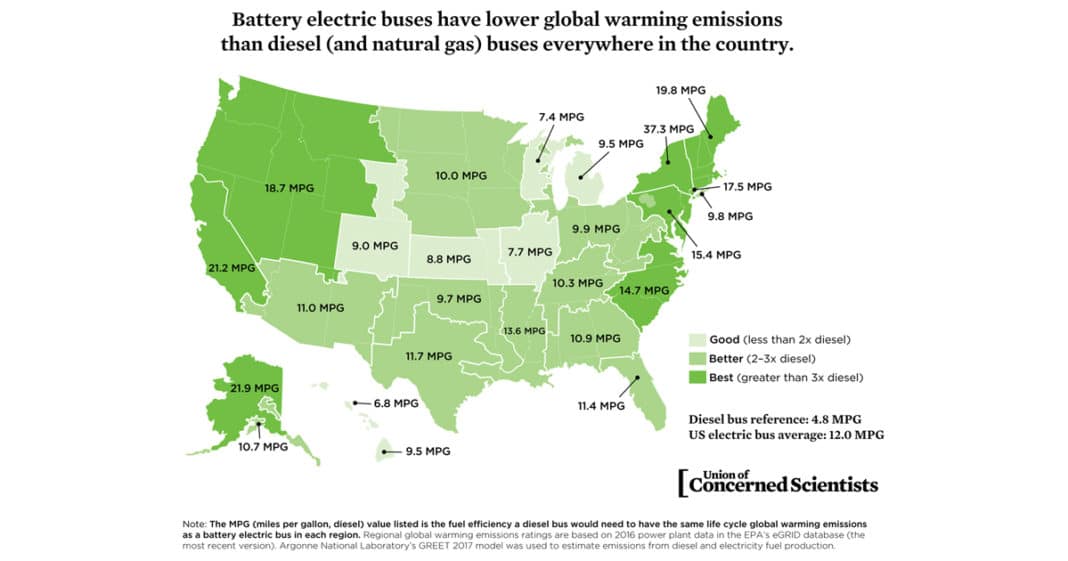Battery electric buses – the people’s electric vehicle – are becoming more and more common. An increasing number of transit agencies – large and small – are making announcements about purchasing electric buses and putting them into operation. The obvious benefit of electric buses is that they don’t have any tailpipe emissions. A question we often get at UCS is, “What about emissions used to generate electricity for electric vehicles?” We answered this for buses charged on California’s grid and found that battery electric buses had 70 percent lower global warming emissions than a diesel or natural gas bus (it’s gotten even better since that analysis). So what about the rest of the country? You many have seen my colleagues’ work answering this question for cars . We performed a similar life cycle analysis for buses and found that battery electric buses have lower global warming emissions than diesel and natural gas buses everywhere in the country.
What the map shows the miles per gallon that a diesel bus would need to have equivalent life cycle global warming emissions as a battery electric bus on today’s grid (really the 2016 grid, the most recent data available). This means a battery electric bus operated in North Carolina, for example, has the same life cycle global warming emissions as a diesel bus that gets nearly 15 miles per gallon! That’s impressive considering a comparable diesel bus actually gets 4.8 miles per gallon. So, you can operate three electric buses in North Carolina and have the same emissions as a single diesel bus. Electric buses are better for the climate than diesel buses everywhere in the country Battery electric buses range from 1.4 to 7.7 times better than a diesel bus, as shown in miles per gallon emissions-equivalency. […]
